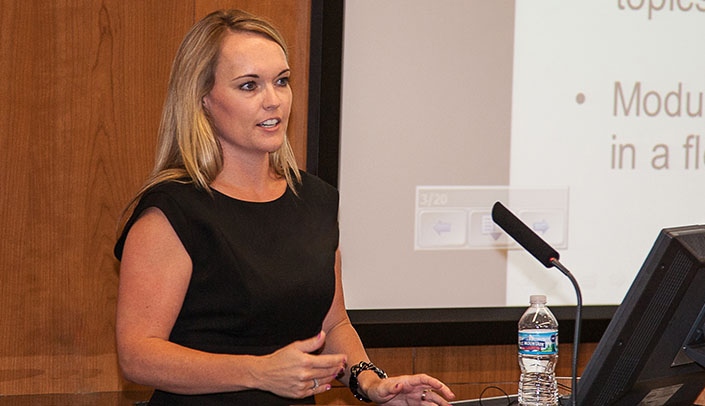UNMC Graduate Studies has implemented an assessment initiative to ensure all graduate students meet certain universal core competencies and co-curricular competencies.
“Consistent, well-formulated assessment and evaluation practices support the success of UNMC’s students, programs, and the institution as a whole,” said Dele Davies, M.D., senior vice chancellor for academic affairs and dean of graduate studies. “By clearly defining the specific skills, competencies, and knowledge our graduate students will have attained by degree completion, Graduate Studies ensures each learner is fully prepared for all aspects of their professional careers.”
Kendra Schmid, Ph.D., campus director of assessment for academic affairs and assistant dean of graduate studies, noted that, since a 2017 retreat, subcommittees have worked together and provided recommendations to the Graduate Council, resulting in these major actions:
- Developed and approved learning outcomes;
- Mapping outcomes and assessments of programs;
- Implemented standard syllabus template for all courses;
- Developed and approved policy for the timeline of the comprehensive exam.
The learning outcomes established by Graduate Studies include the following core competencies:
- Discipline knowledge;
- Critical thinking;
- Research skills;
- Professional behavior;
- Communication skills.
And, Graduate Studies established a Service-Learning/Interprofessional Education Badge Program in order to encourage, record and assess co-, extracurricular and professional-development activities. The program encourages a well-rounded student experience, while also providing a record of such activities that will help UNMC grad students compete with their national peers.
“Assessing common domains across all graduate programs will provide valuable information on areas of strengths and opportunities for growth in our graduate education,” said Dr. Schmid.
